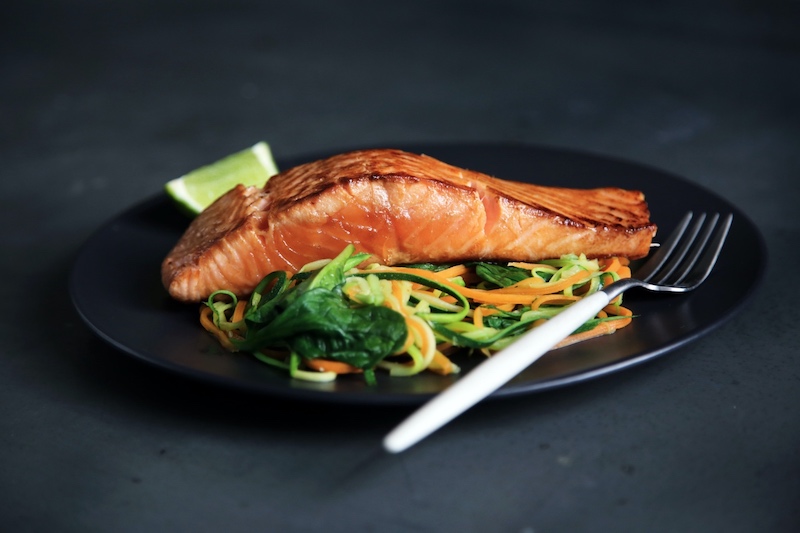
Can Certain Foods Reduce Your Pain?
In my daily work with patients, I’m helping them improve mobility and reduce pain. The fuel you’re putting in your body can most definitely influence your health and longevity – and your pain.
“Just what are the best foods for me to be eating?” is a question many would like a good answer for.
Inflammation
First, I want to discuss Inflammation. This is the process where your body’s white blood cells, and the chemicals they make, protect you from infection – things like bacteria and viruses. In some cases, your body might trigger a white blood cell reaction when there is no outside invader – such as arthritis, cancer and other auto-immune diseases.
Inflammation and pain go hand in hand.
Inflammation can be acute or chronic. Acute inflammation goes away within hours or days, while chronic inflammation can last much longer – up to several years, even after the first trigger is gone.
Other painful conditions of the joints and musculoskeletal system that may be related to inflammation include osteoarthritis, fibromyalgia, muscular low back pain, and muscular neck pain.
Diet and Inflammation
Reducing Inflammation is good for your health, and different foods have been linked to increasing and decreasing inflammation.
In fact, there’s a standardized research tool that’s updated regularly that allows anybody to see if they’re eating foods known to cause chronic inflammation. This tool is called the Dietary Inflammatory Index or DII®.
In this blog, I’ll give you a summary of foods to look out for – the good, and the bad.
THE BAD: Foods Linked to Increased Inflammation
Sugar & High Fructose Corn Syrup
Sugar (a.k.a. sucrose) and high fructose corn syrup are the two main types of added sugar in the Western diet. If you don’t already, I would suggest you read the ingredients in your groceries, it is pretty hard to find items that don’t have sugar added.
Added sugars can increase inflammation, which can lead to diseases such as rheumatoid arthritis, breast cancer, and obesity to name a few.
In one study, mice fed high sucrose diets developed breast cancer that spread to their lungs, partly due to the inflammatory response to sugar. Another study on mice showed that the anti-inflammatory effects of omega-3 fatty acids were impaired in a high sugar diet.
Artificial Trans Fats/Hydrogenated Oils
Artificial trans fats are likely the unhealthiest fats you can eat. These fats are created by adding hydrogen to unsaturated fats.
Ingredient labels often list trans fats as partially hydrogenated oils.
Contrary to natural trans fats (such as those found in dairy and meat), artificial trans fats have been shown to cause inflammation and increase disease risk.
Consuming artificial trans fats has been linked to higher levels of inflammatory markers, such as C-reactive protein (CRP). In fact, in one study, CRP levels were 78% higher among women who reported the highest trans fat intake.
Foods high in trans fats include French fries, fried fast food, some microwave popcorns, certain margarines and vegetable shortenings, packaged cakes and cookies, some pastries, and all processed foods that list partially hydrogenated vegetable oil on the label.
Refined carbohydrates
Please note, I said refined carbohydrates. Not all carbohydrates are bad or problematic. Humans have consumed high-fiber, unprocessed carbs for thousands of years without issue.
However, eating refined carbohydrates has been linked to increased inflammation.
Fiber promotes fullness, improves blood sugar control, and feeds the beneficial bacteria in your gut. However, refined carbohydrates have had the fiber removed.
Candy, bread, pasta, pastries, cookies, soft drinks, cakes, and processed foods are some foods high in refined carbohydrates.
Nightshade Vegetables
Members of the nightshade family – tomatoes, eggplants, peppers, potatoes contain a chemical called solanine. While not usually toxic in the quantity found in your food, solanine is a poison.
Some people with arthritis have reported these foods aggravate their pain and inflammation. If you suffer from arthritis, you may want to try eliminating these foods from your diet and see if you feel relief.
THE GOOD: Foods Found to Reduce Inflammation
Berries
Berries contain antioxidants called anthocyanins which are compounds that have anti-inflammatory effects.
One way your body works to keep your immune system properly functioning is through the production of natural killer cells (NK cells).
In a study done on men, those who consumed blueberries every day produced significantly more NK cells than those that did not. In another study, adults given strawberries prior to consuming a high carbohydrate/fat meal had lower levels of inflammatory factors.
Cruciferous Vegetables
Broccoli, cauliflower, brussels sprouts and kale are among some of the cruciferous vegetables. Research has shown that eating a diet high in cruciferous vegetables is associated with a lowered risk of heart disease and cancer – likely related to the anti-inflammatory effects of the antioxidants they contain.
Broccoli, especially, is rich in an antioxidant called sulforaphane. This compound fights inflammation by lowering levels of cytokines and NF-kB, which increase inflammation.
Fatty Fish
Salmon, tuna, and sardines are a great source of protein and the long-chain omega-3 fatty acids EPA and DHA.
Turmeric
Tumeric has a high content of curcumin – and anti-inflammatory nutrient. There have been studies showing a reduction of inflammation related to a number of diseases, such as osteoarthritis, diabetes, chronic inflammation.
Consuming black pepper along with turmeric assists in absorption of Curcumin. Taking turmeric supplements (which is often combined with piperine – the compound in black pepper that increases absorption of curcumin) are often more effective than trying to get a high enough dose through food.
Olive Oil
Olive oil, especially extra virgin, contains heart-healthy monounsaturated fat, antioxidants and oleocanthal, a compound that can lower inflammation and pain.
Fiber
Fiber lowers C-reactive protein (CRP), a substance in the blood that indicates inflammation. Getting fiber from foods lowers CRP levels more than taking fiber supplements. Foods that have carotenoids, the antioxidants that give carrots, peppers and some fruits their color, are quite good at lowering CRP.
I hope this information has helped to give you options for a healthier diet and a healthier you.
Dr. Ethan Kellum, M.D. Nashville Regenerative Orthopedics

NOTE: This blog post provides general information to help the reader better understand regenerative medicine, musculoskeletal health, and related subjects. All content provided in this blog, website, or any linked materials, including text, graphics, images, patient profiles, outcomes, and information, are not intended and should not be considered or used as a substitute for medical advice, diagnosis, or treatment. Please always consult with a professional and certified healthcare provider to discuss if a treatment is right for you.

